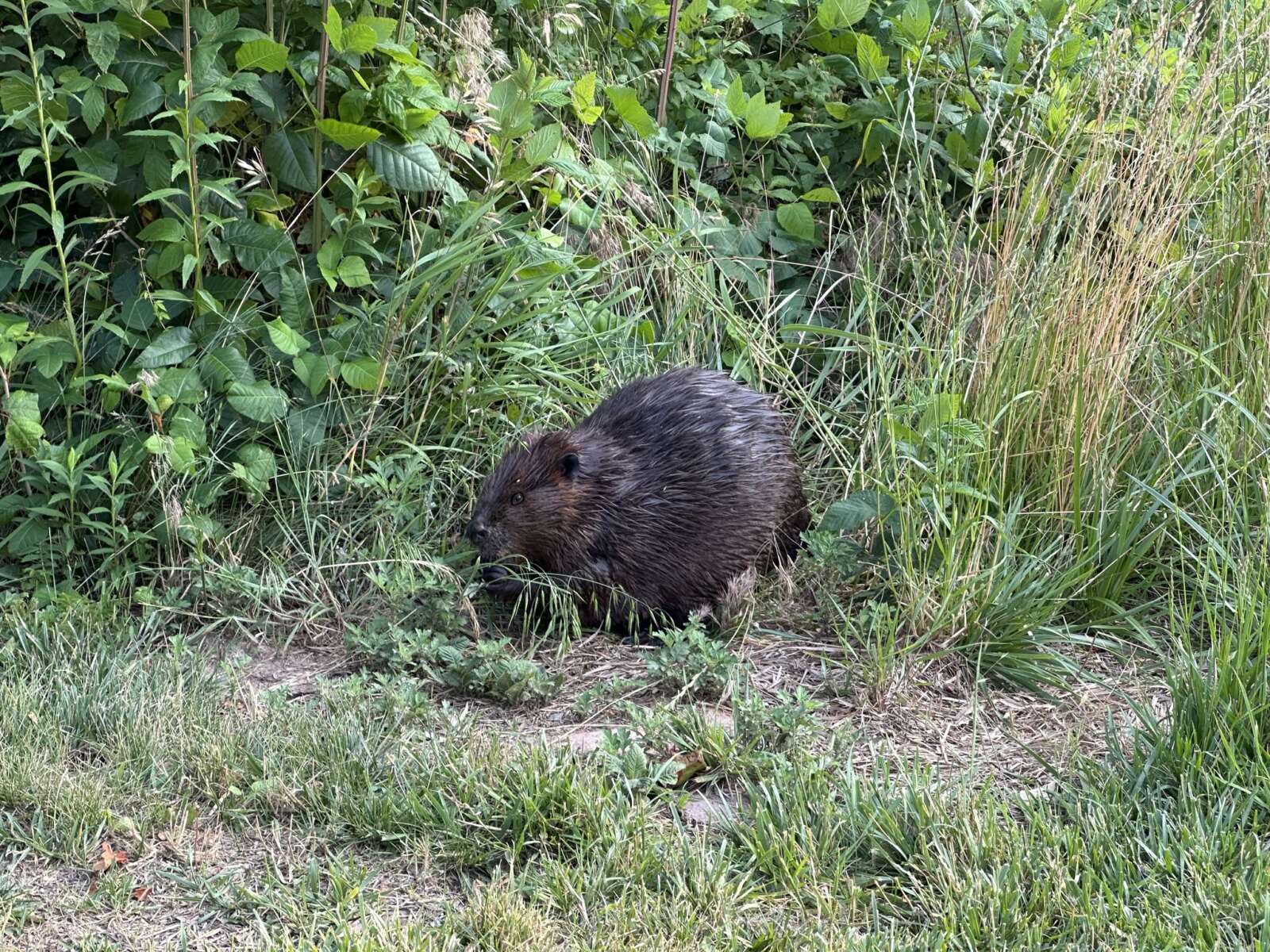This is a sponsored post by Dr. Elizabeth Arguelles, veterinarian and owner of Just Cats Clinic at Lake Anne Plaza. It does not reflect the opinion of Reston Now.
Just like humans, cats can suffer from a variety of heart conditions ranging in severity from benign to life threatening. One of the most common conditions found in cats are heart murmurs. Not all heart murmurs are severe, but it’s important to have your cat evaluated by your veterinarian to determine the best treatment plan for your cat’s particular condition.
What is a heart murmur?
A heart murmur occurs when the blood flow in the heart becomes turbulent. It can be heard when a stethoscope is placed near the heart by your veterinarian. Many heart murmurs are benign, but not always and can indicate further heart disease or structural issues.
Many kittens display a murmur around the age of 6-8 weeks but then “outgrow” within a few months. Adult cats can also get intermittent heart murmurs when their stress levels are elevated. Once the feline relaxes again, the condition disappears.
What are the different types of heart murmurs?
There are three broad categories of murmurs: systolic, diastolic and continuous. Systolic murmurs occur when the heart muscle contracts, whereas diastolic murmurs happen when the heart muscle relaxes between beats. Continuous murmurs persist throughout the cardiac cycle.
Heart murmurs are then further classified according to several other characteristics, such as their location and loudness. With regard to the latter, they are graded on the following scale:
- Grade I – The murmur is barely audible and may only be heard intermittently. It is usually in one location in the chest.
- Grade II – The murmur is soft but can be heard easily with a stethoscope.
- Grade III – The loudness is at an intermediate level. Most murmurs that result from the mechanics of blood circulation are at least Grade III.
- Grade IV – This is a loud murmur that radiates widely and can be heard everywhere that the heartbeat is audible. It can also be felt when the chest is touched in the area of the heart. In cardiac terms, this is called a “thrill.”
- Grade V – The murmur is very loud but still only audible with a stethoscope. The vibration is strong enough to be felt through the cat’s chest wall.
The loudness of the murmur reflects the amount of turbulence that is present in the heart, but it is important to note that it does not always directly correlate with the severity of any underlying diseases.
What are the symptoms of heart murmurs?
The symptoms of heart murmurs depend on many factors, including the grade, configuration and location. Symptoms can range from non-existent to more serious signs of heart disease such as coughing or shortness of breath.
What causes heart murmurs?
Heart murmurs can result from a variety of issues, including:
- Disturbed blood flow due to higher-than-normal flow through normal or abnormal valves or to structures vibrating in the blood flow
- Disturbances in blood flow associated with obstructions due to diseased valves or a dilated great vessel
- Disturbances associated with the regurgitation of blood due to a defective valve or septum
- Anemia (systolic only)
- Hyperthyroidism (systolic only)
- Heartworms (systolic only)
- Mitral and tricuspid heart failure (systolic only)
- Cardiomyopathy (systolic only)
- Mitral and tricuspid valve dysplasia (systolic only)
- Systolic anterior mitral motion (systolic only)
- Ventricular outflow obstruction (systolic only)
- Pulmonic stenosis (systolic only)
- Mitral and tricuspid valve stenosis (diastolic only)
- Ventricular septal defect with aortic regurgitation (continuous only)
- Regurgitation (continuous only)
- Aortic stenosis (systolic and continuous only)
- Endocarditis (systolic and diastolic only)
How are heart murmurs diagnosed?
Most murmurs are detected with a stethoscope during a routine veterinary exam. If your veterinarian detects an abnormal rhythm in the heartbeat or finds that your cat has a weak pulse, then the murmur is most likely caused by an underlying problem. A cat with a heart murmur that is caused by structural heart disease or an extra cardiac problem will also generally display some clinical signs. These may be subtle until the disease advances further. If the murmur is suspected to be caused by something of this nature, additional diagnostic testing will be necessary and may or may not include a treat to the cardiologist.
If your vet determines that the murmur is due to an underlying heart condition, he or she will probably recommend an NT-proBNP test. This is a simple blood test that determines the levels of B-type natriuretic peptide (BNP). It is primarily used to help detect, diagnose and evaluate the severity of heart disease. It can also be used to detect the stress placed on the heart and any damage to the organ. The NT-proBNP is a hormone that is produced in the heart and released when the heart is stretched and working hard to pump blood. An increase in the pro BNP levels usually indicates heart disease.
How are heart murmurs treated?
Treatment depends on the underlying cause. If your cat is still a young kitten and the murmur is of low intensity, your vet might recommend re-examination in a few weeks to see if the murmur has changed in intensity or disappeared. In adult cats, it depends on the severity of the murmur, but treatment may involve medications, radiographs, and possibly a trip to the cardiologist for further testing.
For further information, please visit our Feline Health Library at: www.justcatsclinic.com (found under client resources)






